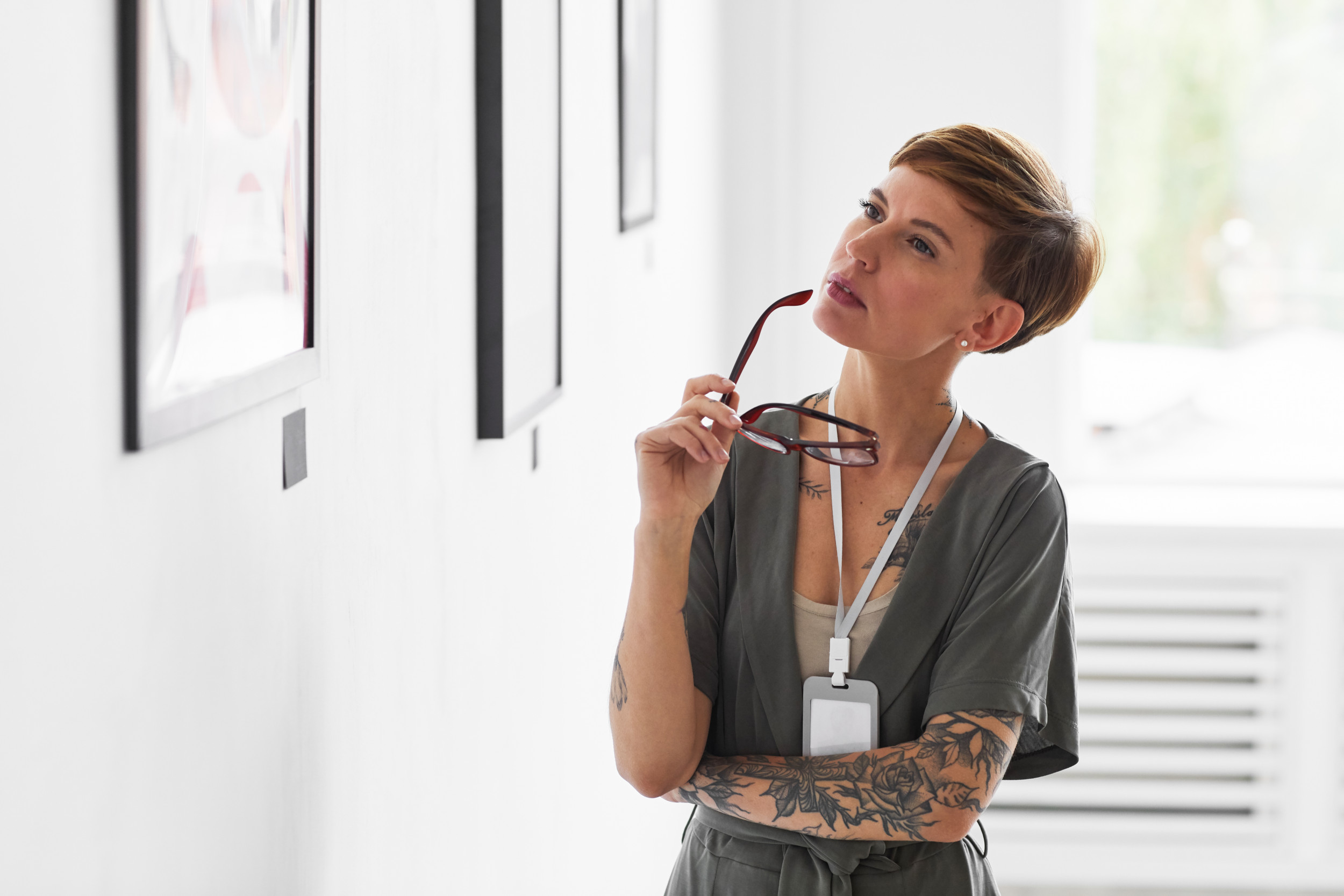
When it comes to bare-bones economics, the ineffable value of the arts is often overlooked, making it first on the cutting block. The urgent need for public health and medical professionals during the Covid-19 pandemic has only intensified this reductive way of thinking. In the U.K. last year, the Office for Students announced a drastic cut of 50% to higher arts education funding, with the aim of reprioritizing funding toward "high-cost, high-value" STEM subjects — or science, technology, engineering and math. In the U.S., colleges continue to prioritize STEM fields over liberal arts degrees with some of the impact coming from Covid-19-related budget constraints.
As a doctor and educator myself, the value of my knowledge or validity of my career path has never been called into question, yet as a scientist with deep creative roots and a love of the humanities, I know I'd be completely lost without all the arts has provided me. Instead of turning away from arts, I believe more of us need to embrace them as a pivotal side of life and culture for our society to live up to its fullest potential.
Whilst a medical entrepreneur, pediatric dentist and associate professor by trade, I was raised to have a creative, expressive fluency that equaled my analytical acumen. My family of scientists always appreciated the fine arts, and from childhood through my teenage years, music and medicine held equal weight for me. I studied both with equal passion and intensity, only deciding at the age of 18 years old to pivot away from studying as a classical music conductor, choosing instead to opt for a career in medicine.
As a medical professional, I've never lost my creative spark, love of the arts or belief in how they enrich my life. It's something I prioritized when starting a family of my own. In my children, I strove to instill the same respect and appreciation for creative expression through frequent trips to the museum, where we'd regularly play games of trying to match the artist to their corresponding period in art history.
The neoliberal skeptic would ask what the point of this exercise was: Did I expect my children to become the next Picasso? Of course not. But there is a bigger lesson we all can learn from studying, appreciating and taking in the arts: They open up our way of thinking to new patterns and alternative ways of approaching things. Seeing how Picasso disrupted the traditions of his time — how he was able to step off the expected path and create something entirely new — teaches us all that we can do the same in the context of our own careers. In this way, flexibility and inspiration we see modeled by artists can, in fact, inspire vision and creativity in STEM, where it is most needed.
To be clear, art cannot come first in the hierarchy of needs: One cannot appreciate a masterful sculpture and beautiful symphony in moments of crisis. But once your basic needs are met, art provides a window into invention. Too often — and especially in academia — we silo off our experts, instructing them to stay in their lane. There is nothing wrong with specializing in a field about which you are passionate. Still, innovation requires an open mind, which is precisely what art provides: the ability to see differently.
Think of all the great inventors and scientists who revolutionized their fields. A huge number of them were rejected as quacks or lunatics simply because they did things differently from before. Galileo was condemned for heresy for proclaiming that the earth revolves around the sun, while in my own field, the Hungarian doctor Ignaz Semmelweis, who discovered handwashing as a breakthrough in preventing infection and death, was fully ostracized by his peers in the medical community. We don't advance by doing things the same way over and over again.
Circling back to the fine arts, even if we cannot create like Rembrandt, Rodin or Lichtenstein, it's worth appreciating them in the context of art history to see how they pushed back against tradition. They model how we might see something that others don't — how it's possible to do something different that's never been done before. They help us unlock our inner creativity, which allows us to push progress forward.
To offer a less abstract, more analytical argument in favor of the arts, there are also quantifiable benefits to integrating them into our daily life and practices. Like many others in my field, I always have classical music on in my surgery: Studies have proven its beneficial impact on both improving outcomes while calming patients and helping put doctors into a state of flow where they can perform to the best of their abilities. For the visual arts, it's been shown that art in hospitals tangibly eases the mood and improves communication. You don't have to be in a museum or concert hall to benefit from art.
Lastly, surrounding yourself with art encourages your own inner creativity. Anything can be elevated to an art form, even the most technical and scientific tasks. If you're creating, you can be creative — whether a pianist playing a nuanced interpretation of a sonata or a dental technician creating an immaculate ceramic crown. Art also encourages a spirit of inquiry and discovery that can deeply enrich both your personal and professional life. I, myself, have never stopped exploring, seeking connections and creating: I credit this open-mindedness with allowing me to discover my career in biomed tech entrepreneurship, which is in itself all about continuously discovering.
Right now, the world is facing unprecedented challenges, requiring both our full imaginative faculties and our intellect to tackle. To disrupt in a positive, advancing way, we need to push past our current boundaries and see things from a new perspective. We need to imagine our way into a better future. The arts are the purest expression of human ingenuity, and that lies at the core of invention. To make the boldest advances in every field, we need our full creativity and vision, which means more art, not less.
Uncommon Knowledge
Newsweek is committed to challenging conventional wisdom and finding connections in the search for common ground.
Newsweek is committed to challenging conventional wisdom and finding connections in the search for common ground.
About the writer
To read how Newsweek uses AI as a newsroom tool, Click here.








